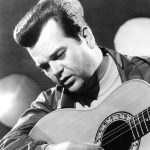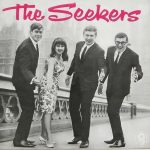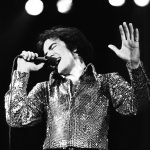“𝙇𝙞𝙠𝙚 𝙖 𝙑𝙞𝙧𝙜𝙞𝙣” – 𝙈𝙖𝙙𝙤𝙣𝙣𝙖

Released in 1984 as the lead single from her second studio album of the same name, “Like a Virgin” is one of Madonna’s most iconic and groundbreaking songs. Written by Tom Kelly and Billy Steinberg, and produced by Nile Rodgers, the song marked a pivotal moment in both Madonna’s career and the evolution of pop music. With its infectious melody, provocative lyrics, and bold sense of style, “Like a Virgin” catapulted Madonna into superstardom, while also challenging societal norms around female sexuality and empowerment.
Musically, “Like a Virgin” is a quintessential example of the 1980s pop sound, with its upbeat tempo, synthesized instrumentation, and catchy hooks. Nile Rodgers’ production brought a polished, danceable groove to the track, blending the energy of disco with the emerging electronic sound of the era. The song’s bouncy rhythm and playful melodies made it an instant hit on the radio and in nightclubs, cementing its status as a pop anthem. The infectious chorus, where Madonna’s breathy voice sings, “Like a virgin / Touched for the very first time,” is one of the most memorable moments in pop music history, showcasing her ability to fuse innocence with sensuality in a way that was both provocative and approachable.
Lyrically, the song deals with themes of love, rebirth, and sexual empowerment, with Madonna singing about the feeling of being “brand new” in a relationship, as if experiencing love for the first time. While the lyrics might appear innocent on the surface, they are laden with deeper connotations that challenged the conservative views of the time. The line “Like a virgin, touched for the very first time” became a focal point for debates on sexuality in pop culture, with some interpreting it as a commentary on purity and others viewing it as a bold statement of sexual independence.

At the time of its release, “Like a Virgin” sparked controversy due to its suggestive lyrics and Madonna’s daring persona. Her live performances, particularly her infamous 1984 MTV Video Music Awards performance where she writhed on stage in a wedding dress, shocked audiences and cemented her reputation as a boundary-pushing artist. The visual imagery associated with the song—Madonna in bridal attire, juxtaposed with the song’s sexually charged lyrics—challenged traditional notions of femininity and purity. By mixing symbols of virginity and marriage with themes of sexual autonomy, Madonna subverted cultural expectations, creating a new archetype for female pop stars who could be both sensual and in control of their own image.
“Like a Virgin” also played a significant role in establishing Madonna as a fashion icon. The combination of her provocative outfits, layered accessories, and unique sense of style influenced an entire generation of young women and became a defining look of the 1980s. Madonna’s use of fashion as a form of self-expression in “Like a Virgin” was emblematic of her larger career, where she consistently used her image to challenge norms and redefine the role of women in entertainment.
The success of “Like a Virgin” was monumental, reaching No. 1 on the Billboard Hot 100 chart and staying there for six weeks. The song became one of the defining hits of the 1980s and solidified Madonna’s place as the “Queen of Pop.” Its cultural impact extended beyond the music charts; it became a symbol of the shifting attitudes toward female sexuality and empowerment in the late 20th century. Madonna’s unapologetic approach to her image and music opened doors for future female artists to explore their own sexual identities and take control of their narratives in the industry.
“Like a Virgin” also marked the beginning of Madonna’s long career of reinventing herself. With each album and era, she would continue to push boundaries and evolve her sound and image, but “Like a Virgin” remains a cornerstone of her legacy. It established her as not just a pop star, but as an artist unafraid to challenge societal expectations and reshape the cultural landscape.
In conclusion, “Like a Virgin” by Madonna is more than just a pop song—it is a cultural milestone that redefined the way women in music could express their sexuality and autonomy. With its catchy melodies, provocative lyrics, and bold visual imagery, the song remains a defining moment in Madonna’s career and a lasting influence on pop culture. Its impact continues to be felt today, as Madonna’s fearless approach to her art has inspired generations of artists to embrace their own individuality and break down barriers in the music industry.











